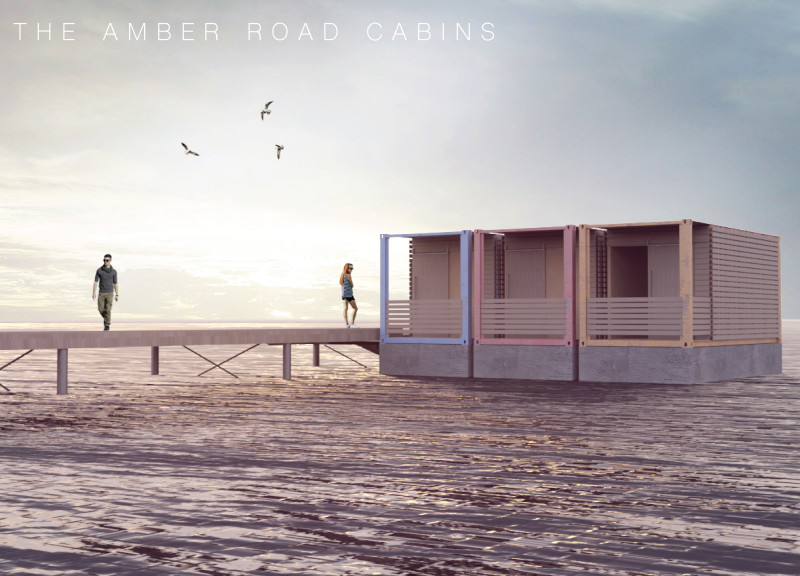5 key facts about this project
The Amber Road Cabins offer a practical response to coastal living through their focus on modularity, sustainability, and adaptability. Using recycled 20' shipping containers as the main building material, the design integrates these units into a habitat that efficiently meets the needs of its environment. The overall concept revolves around maximizing space and material use while providing comfortable accommodation for visitors.
Floating Foundation System
The cabins feature a floating foundation system that rests on a base made of concrete and styrofoam. This method ensures stability and durability while avoiding the complexities of traditional foundations. Locating the units in the water allows for adaptable placement that can respond to the varying characteristics of coastal areas.
Material Aesthetic
Partially enclosing each cabin is a rainscreen made from wood sourced locally. This element protects the containers from harsh weather while allowing their vibrant colors to remain visible. The mix of natural wood and industrial metal offers a pleasing contrast, which meets both functional needs and aesthetic preferences.
Modular Configuration
The design permits an easy addition or removal of four-bed units according to site requirements. Each cabin is constructed at a central facility, making it possible to transport the units by boat to their final locations. This approach lowers transportation costs and enables quicker installation, making the cabins versatile for different situations.
Public Interaction
Cabins are anchored to piers that extend from the beach, allowing for a connection between public and semi-private spaces. These piers not only provide access to the cabins but also encourage an engaging experience for visitors with their surroundings. This aspect reflects a mindful approach to integrating the structures into the coastal landscape.
The thoughtful pairing of natural wood with shipping containers adds to the overall design, enhancing the cabins' visual character while emphasizing sustainability.


























